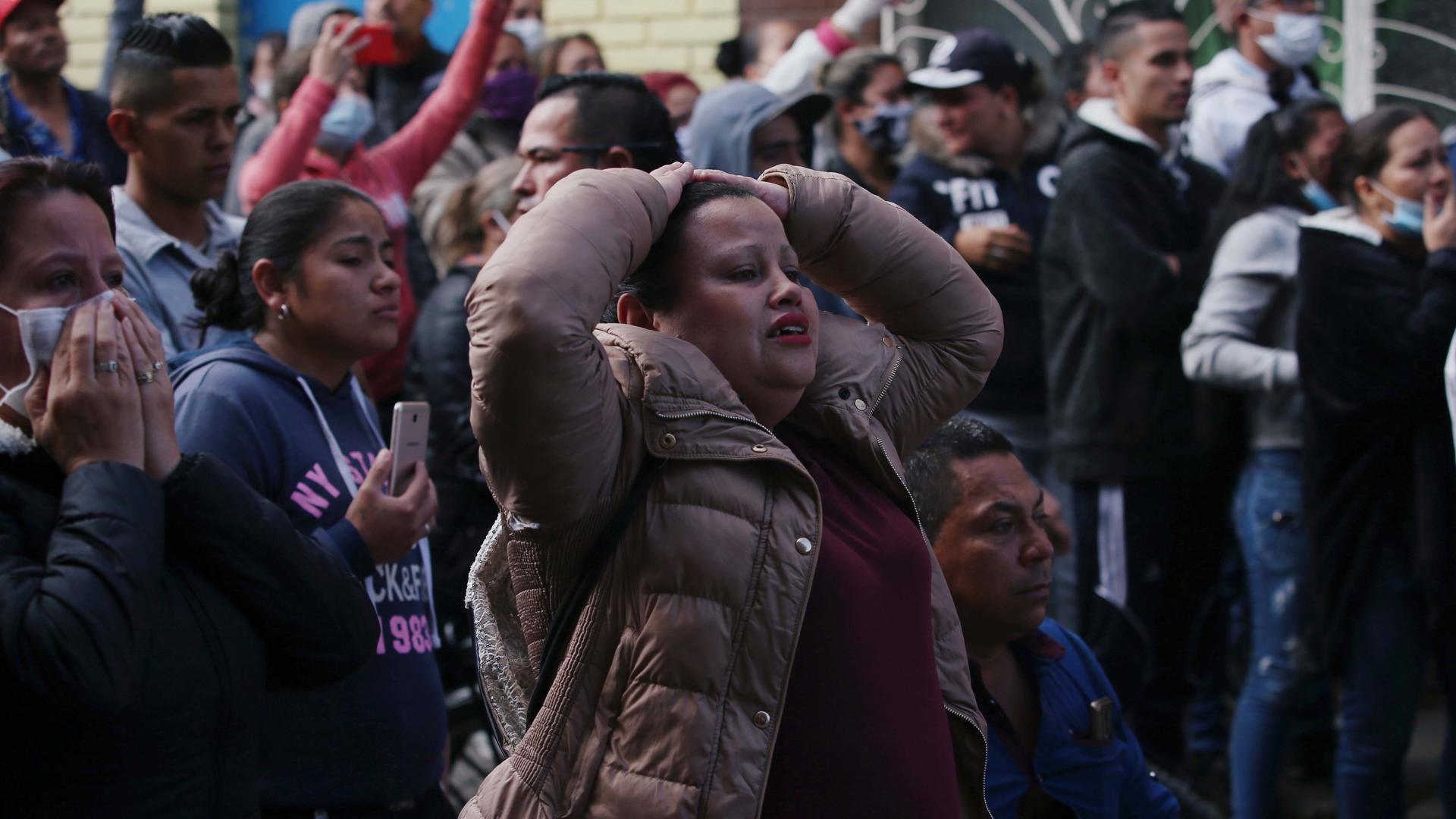As people across the globe enter self-isolation, what’s happening to people who were already in lockdown before the coronavirus pandemic?
Hundreds of thousands of people are in prison across the world. And without many resources, medical and otherwise, prisoners are at high risk for contracting the coronavirus.
Governments in Germany, Iran, Canada, the United States and elsewhere are releasing prisoners with health conditions or who are serving time for low-level offenses in order to prevent the spread of COVID-19. Last weekend, a prison riot in Colombia’s capital, Bogotá, left 23 prisoners dead and 83 injured, the justice minister said on Sunday, as detainees protested sanitary conditions amid the outbreak.
Florian Irminger is the executive director of Penal Reform International. He spoke to The World’s host Marco Werman about how governments can protect prisoners as the coronavirus spreads.
Related: COVID-19: The latest from The World
Marco Werman: What factors can put prison populations at risk?
Florian Irminger: Overcrowding means proximity. So, what we hear in the media and what we hear from WHO about social distancing, prisoners cannot usually do that. They cannot keep a distance with others. But it’s also a matter of hygiene in prisons, in general. Often, those are places that are rather dirty, filthy, where you’d have less access to health care systems and where you don’t really have the opportunity to wash your hands and kind of keep hygienic as recommended.
What countries’ prison systems are you most worried about in terms of the coronavirus spreading?
That is actually a difficult one. In many sub-Saharan African countries, there is a general lack of protection of prisoners whenever they have any kind of disease. So, there are big risks there. And then Latin America is famous for high overcrowding rates and also for prison management often being deficient. A country like the Philippines, which has a 460% rate of overcrowding — that means for 100 beds you have 460 prisoners — that obviously, creates a huge risk.
There are also other prisons where you have high-security measures, high-performing prisons like in the United States of America, where risks might be more associated to security and riots of prisoners because of restriction of contact with the outside world, with family relatives and limitation of movements, no rehabilitation programs anymore. They’re in the hands of the state. And so, this kind of lockdown of the prison can also create security risks in very well-managed prisons. We have seen that in Italy with riots that actually resulted in multiple people dead, including prison staff.
So, what is the answer for officials if the coronavirus is already found to be in a prison? What is the proper response?
If the coronavirus is already in a prison, the affected person needs to be brought into a medical facility and be taken care of there. Potentially, affected people need to be isolated in a humane way. What we see around the world happening right now is prisons going in lockdown. And that’s extremely dangerous because if you lock down a prison, you create conditions in which distress is higher within the prison. A lockdown means prison staff stay in just like the prisoners, too. And then you have risks of ill-treatment and torture; deaths increase. And lockdown also means less access for monitoring bodies, which obviously, means in that prison, anything can be happening and we won’t know about it. So, lockdown, in general, should really only be an ultimate measure if there is a high rate of infection in the prison. The most efficient way of reducing risks is emergency releases.
Right. So, Iran released 70,000 prisoners this month to stop the spread of the coronavirus. You would say that’s the right move?
In the case of Iran, the problem is we don’t really know whom they released, why they released them, but we also don’t know why they were even detained in the first place. And very often, you see that people are detained for very low offenses or nonviolent offenses. In general, reducing the prison population is one positive measure. They can reduce the number of people in pretrial [detention]. They can release vulnerable groups. In the United States, there are so many people over 60 that sit in prisons, who have been sitting for so long, and we should be looking at early release for those populations.
When there is a crisis, the prisoners are really at the losing end. We don’t see prisons as an integral part of the society. But right now is a moment when prison management, criminal justice authorities and governments have to be looking at whom they can release.
This interview has been lightly edited and condensed for clarity. Reuters contributed reporting.
